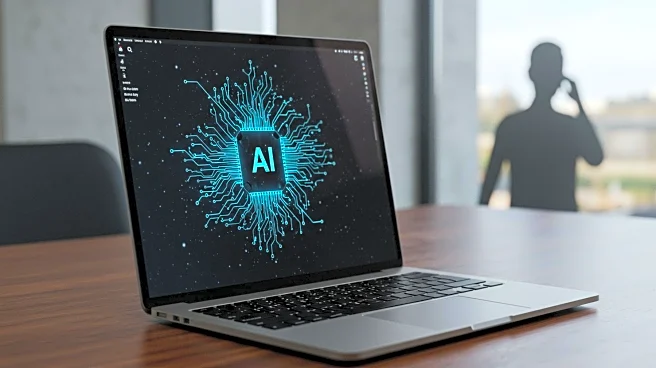What is the story about?
What's Happening?
A recent survey conducted by Cox Business reveals that many millennial and Gen Z workers in the U.S. are utilizing artificial intelligence tools to enhance productivity at work. Despite the benefits, nearly half of these workers are reluctant to disclose their AI usage to employers due to fears of job replacement. The survey, which included over 1,000 participants, found that 47% of respondents are concerned about AI potentially replacing their roles. Additionally, 30% are either unaware of their company's AI policy or report that no such policy exists. The use of personal apps and software over workplace tools is prevalent, contributing to a 'shadow IT' issue that poses security risks. The survey highlights the need for companies to align their tech strategies with the expectations of younger employees, focusing on tech investment, training, and policy development.
Why It's Important?
The reluctance of millennial and Gen Z workers to disclose AI usage underscores a significant challenge for businesses in adapting to technological advancements. As AI tools become more integrated into workplace operations, companies must address employee concerns about job security and establish clear policies to manage AI use. This situation presents an opportunity for businesses to enhance productivity and innovation while ensuring cybersecurity and workflow optimization. Companies that successfully navigate these challenges may gain a competitive edge by fostering a tech-savvy workforce that is comfortable with AI integration. Conversely, failure to address these issues could lead to increased security risks and a disconnect between employee capabilities and organizational goals.
What's Next?
Looking ahead, businesses are expected to focus on improving cybersecurity and optimizing workflows to accommodate the evolving needs of a tech-driven workforce. As AI tools continue to develop, companies may need to revise their policies and training programs to better support employees in leveraging AI for productivity and innovation. Additionally, organizations might consider engaging employees in tech decision-making processes to enhance their influence and satisfaction. The ongoing dialogue between employers and employees regarding AI usage and its implications will be crucial in shaping the future of work.

















